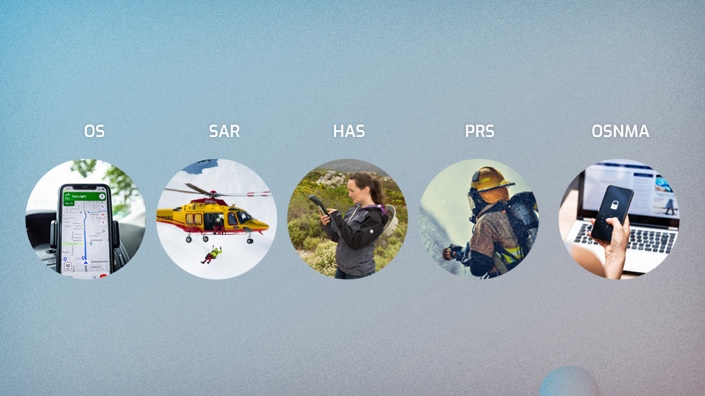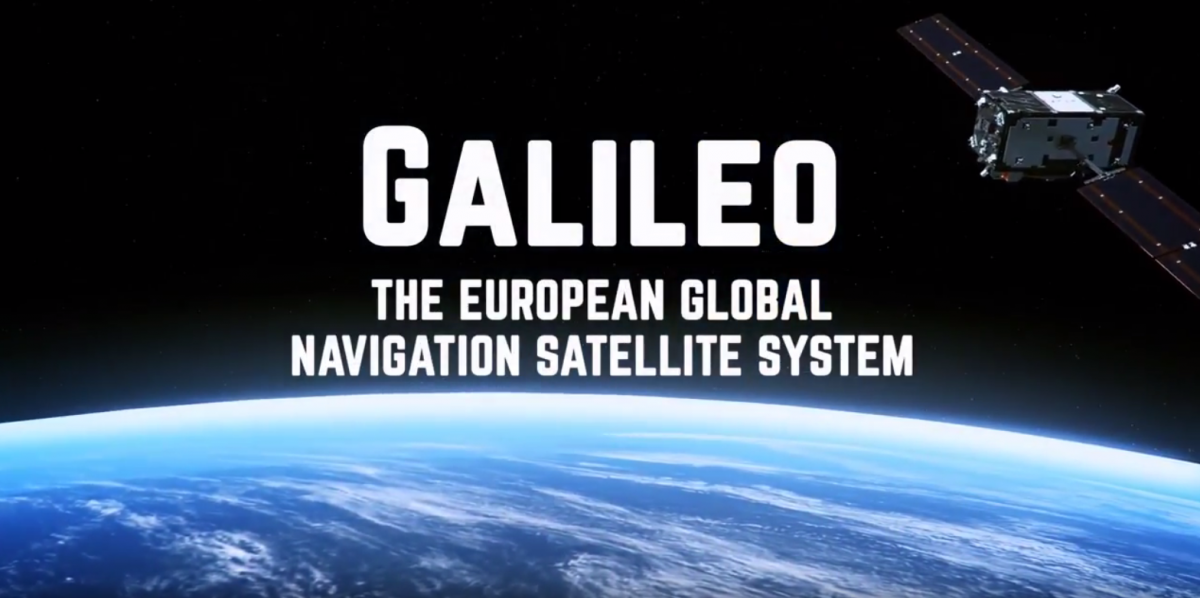GALILEO SERVICES OVERVIEW

Galileo, the European Global Satellite Navigation System (GNSS), provides Galileo first Generation (G1G) services. With more than 30 Galileo satellites orbiting the Earth and the supporting ground station infrastructure, Galileo Services are being continuously provided to users worldwide.
In 2016, Galileo officially moved from a testing phase to the provision of operational services. As a result, users around the world can be guided using the positioning, navigation and timing information provided by Galileo. Moreover, thanks to services such as the High Accuracy Service, Galileo users can exploit high accuracy positioning and are able to benefit from increased protection against spoofing from the Open Service Navigation Message Authentication service.
This is excellent news for users, chipset and receiver manufacturers, application developers and anyone who wants to benefit from the improved accuracy, reliability, availability and coverage that Galileo brings.
What does this mean for you?
Better positioning and navigation
The Open Service ranging performance ranks first among all GNSS service providers (readers are invited to regularly check the quarterly performace reports available here). Leveraging this, the Open Service shows better performace for most of the parameters included in the Service Definition Documents when compared to other GNSS open services.
The Galileo OS is interoperable with GPS services. It therefore provides a direct benefit to users who are able to exploit both Galileo and GPS constellations, by increasing the number of available satellites in view, especially in conditions of partially obstructed horizon. In particular, navigation in cities, where satellite signals can often be blocked by high buildings, benefits from the increased number of GNSS satellites and of the improved positioning availability and accuracy provided by Galileo.
Decimetre level accuracy for the most demanding applications
The Galileo High Accuracy Service (HAS) provides precise orbit and clock corrections and biases for the Galileo and GPS constellations. The HAS is transmitted in the Galileo E6 signal (E6-B data component) as well as via the Internet and, when processed by an appropriate algorithm, enable the computation of a High Accuracy position, velocity and time (PVT) solution in real-time.
Exceptional timing accuracy
Galileo’s excellent timing accuracy contributes to enabling more resilient synchronisation of banking and financial transactions, telecommunication and energy distribution networks to help them operate more efficiently – an often overlooked but essential task.
Faster response to emergencies
Galileo Search and Rescue Service (SAR/Galileo) plays a crucial role in worldwide SAR efforts as part of the Cospas-Sarsat programme, contributing, thanks to its large space and ground segment components, to timely and accurately locate distress beacons by processing their alerting signals and dispatching its resulting data to relevant SAR authorities. This significantly augments the likelihood of survival for those in perilous situations. Since 2020, the Return Link Service (RLS) is being provided exclusively by Galileo. RLS provides SAR users with a visual confirmation and vital reassurance that their distress transmission has been received. The SAR/Galileo Services are operating in Full Operational Capability as of October 2024 reaffirming Galileo's commitments to safety and security of world-wide SAR operations. On average, a distress signal is detected, located and acknowledged to beacon owners within one minute.
Unique message authentication
Galileo Open Service Navigation Message Authentication (OSNMA) complements the Open Service by delivering authenticated data assuring worldwide users that the received Galileo navigation message is coming from the system itself and has not been modified. This increases the likelihood of detecting spoofing attacks at the data level and significantly contributes to the security of the positioning and timing solution.
What’s next for Galileo?
Galileo, with its operational signals provided since 2016, has grown in users over time and is serving over 4 billion devices as well as delivering crucial information for emergency services. The performance of Galileo is gradually improving as additional satellites have been added to the constellation, enabling the delivery of final services for some G1G (Galileo first Generation) services such as SAR.
Galileo will continue expanding its Service Portfolio in line with the provisions of the European Union Space Regulation and with the aim of fulfilling the user needs, regularly collected by EUSPA.
Looking ahead, the Second Generation of Galileo (G2G), currently under development, represents the next major upgrade of both the constellation and the ground segment, designed to deliver higher positioning accuracy together with enhanced security and robustness.
